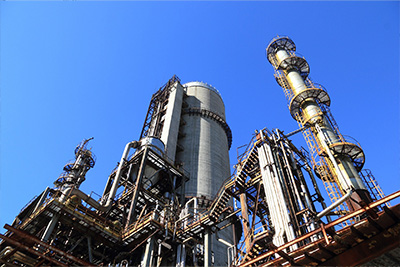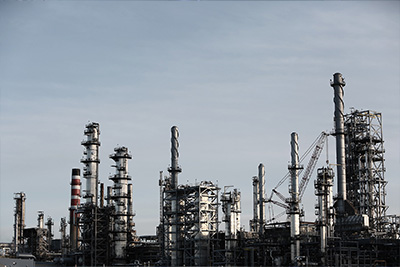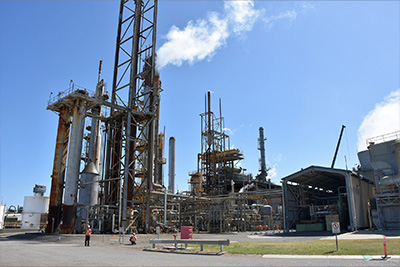-
![The Role of Methyl···]() 2024-11-15 The Role of Methyltin Mercaptide in ···
2024-11-15 The Role of Methyltin Mercaptide in ···Methyltin mercaptide plays a crucial role in advancing the sustainable development goals within the plastics industry. As an effective catalyst, it enhances the production efficiency and durability of plastic materials, contributing to reduced waste and energy consumption. This chemical compound supports the industry in minimizing environmental impact by improving product longevity and facilitating recycling processes. Consequently, the use of methyltin mercaptide aligns with global sustainability objectives, promoting eco-friendly practices and resource optimization in plastic manufacturing.
read more > -
![Assessing the Toxi···]() 2024-11-15 Assessing the Toxicological Effects ···
2024-11-15 Assessing the Toxicological Effects ···This study evaluates the toxicological impacts of methyltin mercaptide in industrial settings and occupational environments. Methyltin mercaptide, commonly used in various industrial applications, poses potential health risks to workers exposed to it. The research examines its effects on human health, focusing on neurotoxicity, respiratory issues, and dermal irritation. Findings indicate that prolonged exposure can lead to significant adverse health outcomes, underscoring the need for stringent safety measures and protective practices in workplaces.
read more > -
![Optimizing the Use···]() 2024-11-15 Optimizing the Use of Methyltin Merc···
2024-11-15 Optimizing the Use of Methyltin Merc···This study focuses on enhancing the circular economy by optimizing the use of methyltin mercaptide in blends with recycled polyvinyl chloride (PVC). The research explores how this additive can improve the properties and performance of recycled PVC materials, thereby extending their lifecycle and promoting sustainable practices. Through a series of experiments, the study identifies optimal concentrations and mixing procedures, providing guidelines for industries to adopt more efficient and environmentally friendly recycling processes.
read more > -
![Methyltin Mercapti···]() 2024-11-15 Methyltin Mercaptide and Its Role in···
2024-11-15 Methyltin Mercaptide and Its Role in···Methyltin mercaptides play a crucial role in the stabilization of high-performance PVC compounds by effectively preventing dehydrochlorination. These organotin compounds act as potent inhibitors, enhancing the thermal stability and longevity of PVC materials. The unique chemical properties of methyltin mercaptides enable them to form stable complexes with HCl, thereby reducing the concentration of free HCl that can degrade the polymer chain. This mechanism not only improves the overall performance of PVC but also broadens its application range in various industries, including construction and automotive sectors. Thus, incorporating methyltin mercaptides significantly contributes to the development of more durable and efficient PVC products.
read more > -
![Thermal Decomposit···]() 2024-11-15 Thermal Decomposition Behavior of Me···
2024-11-15 Thermal Decomposition Behavior of Me···The thermal decomposition behavior of methyltin mercaptide in polyvinyl chloride (PVC) was investigated, revealing significant implications for industrial processing. The study found that the decomposition process is temperature-dependent, with elevated temperatures accelerating the breakdown of methyltin mercaptide. This leads to the release of volatile by-products, which can affect material properties and process efficiency. Understanding these dynamics is crucial for optimizing manufacturing processes and minimizing environmental impacts in industries utilizing PVC materials.
read more > -
![A Comparative Anal···]() 2024-11-15 A Comparative Analysis of Methyltin ···
2024-11-15 A Comparative Analysis of Methyltin ···This study compares methyltin mercaptides and tin-free stabilizers in Polyvinyl Chloride (PVC) wire and cable applications. The analysis evaluates their thermal stability, electrical properties, and environmental impact. Results indicate that while methyltin mercaptides offer superior thermal stability, tin-free alternatives present eco-friendlier options with adequate performance, suitable for applications requiring reduced heavy metal content. This comparison aids in selecting appropriate stabilizers based on performance and environmental considerations.
read more > -
![Enhancing the Effi···]() 2024-11-15 Enhancing the Efficiency of Methylti···
2024-11-15 Enhancing the Efficiency of Methylti···This study investigates the enhancement of methyltin mercaptide efficiency through synergistic effects with co-stabilizers. The results indicate that the combination of methyltin mercaptide and specific co-stabilizers significantly improves thermal stability and prolongs the service life of polymeric materials. This synergistic approach not only optimizes the performance of methyltin mercaptide but also provides a cost-effective solution for enhancing the durability and protection of various polymeric products.
read more > -
![Impact of Methylti···]() 2024-11-15 Impact of Methyltin Mercaptide on th···
2024-11-15 Impact of Methyltin Mercaptide on th···The study investigates the impact of methyltin mercaptide on the surface properties of polyvinyl chloride (PVC) used in automotive interior components. Results indicate that methyltin mercaptide significantly alters the surface energy and wettability of PVC, enhancing its anti-static and anti-fouling properties. These changes improve the material's durability and appearance, making it more suitable for interior automotive applications. This research provides valuable insights for optimizing the formulation of PVC compounds used in vehicle interiors to enhance their performance and longevity.
read more > -
![Developing New For···]() 2024-11-15 Developing New Formulations of Methy···
2024-11-15 Developing New Formulations of Methy···This study focuses on the development of new methyltin mercaptide formulations designed specifically for high-density polyvinyl chloride (PVC) applications in construction. These formulations aim to enhance the thermal stability and processing performance of PVC materials, ensuring they meet stringent industry requirements. The research explores the impact of various chemical compositions on the final properties of PVC products, with an emphasis on improving durability and environmental resistance. The outcomes are expected to contribute significantly to more sustainable and efficient construction practices.
read more >









